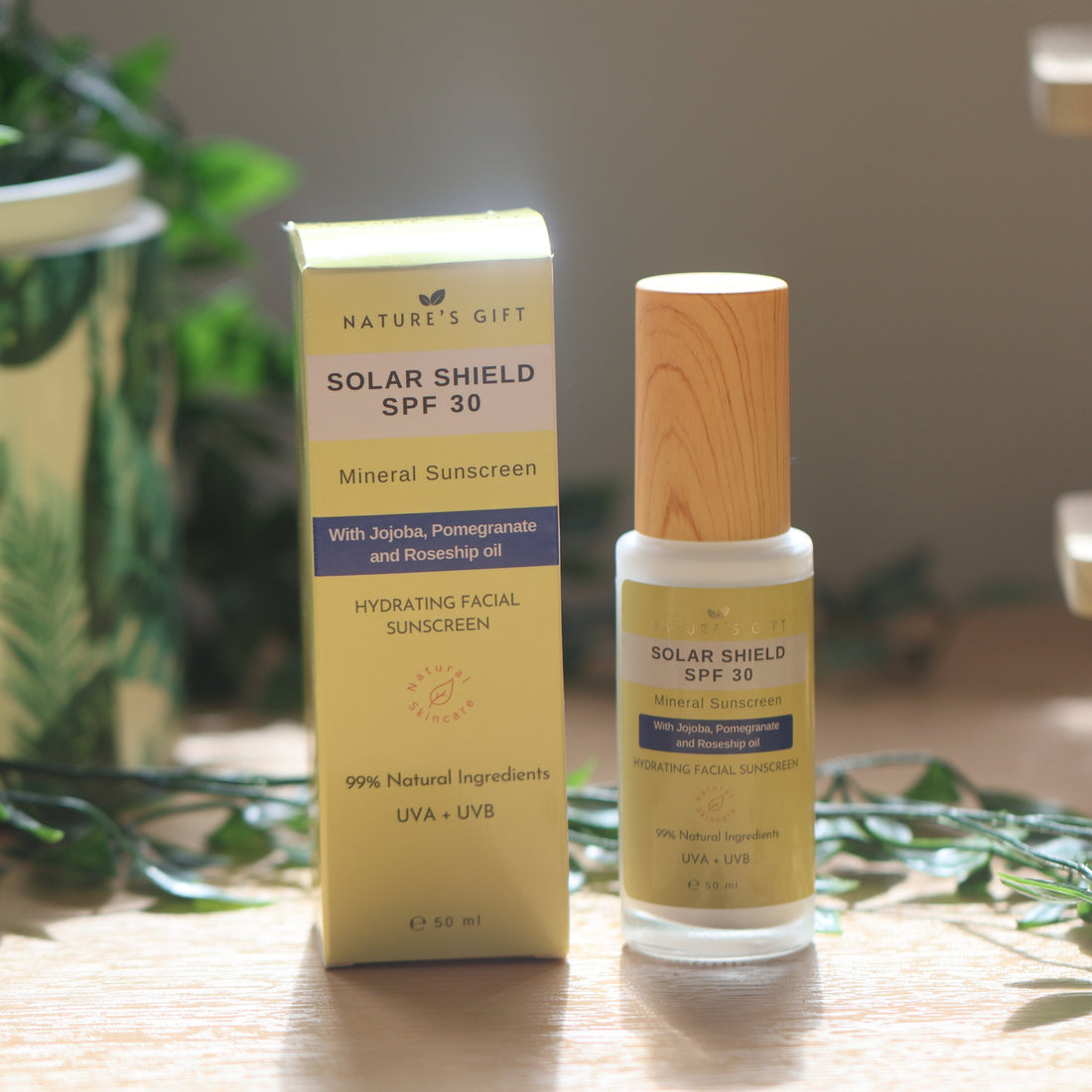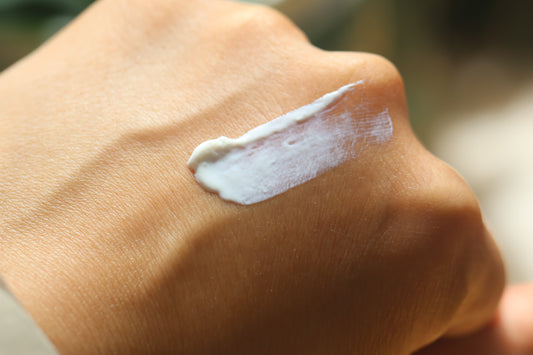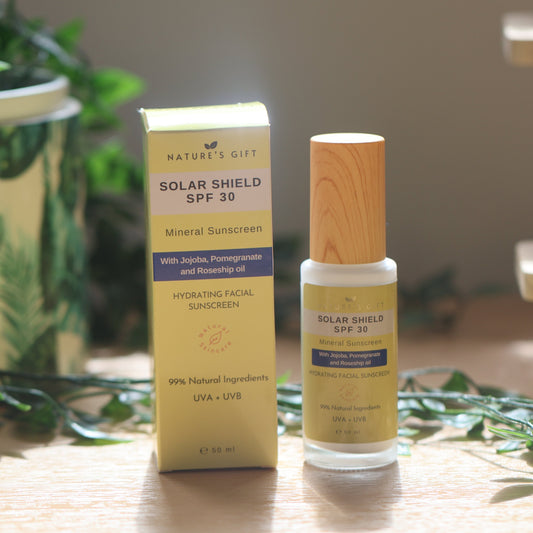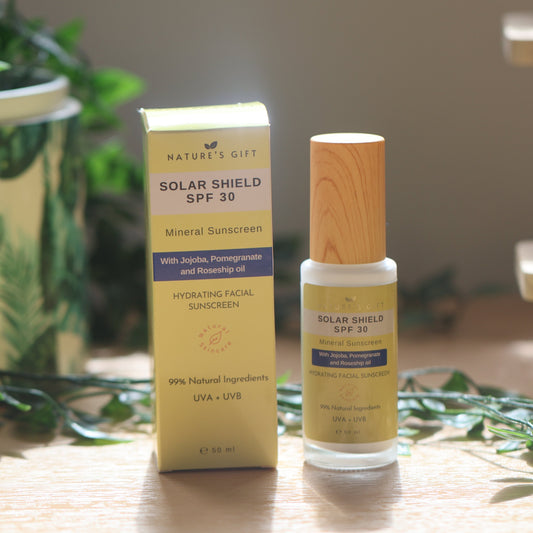When it comes to protecting your skin from the sun, choosing the right sunscreen is crucial. With so many options available on the market today, it can be overwhelming to know which one is best for your skin’s health. While chemical sunscreens are commonly used, natural mineral SPFs have been gaining more attention—and for good reason.
In this post, we’ll dive into why mineral SPF is a superior choice for your skin and how it provides better protection and nourishment compared to chemical sunscreens.
What is Mineral Sunscreen?
Mineral sunscreen, also known as physical sunscreen, uses natural ingredients like zinc oxide and titanium dioxide to form a protective barrier on the skin's surface. These minerals work by physically reflecting and scattering UV rays, preventing them from penetrating the skin.
In contrast, chemical sunscreens use synthetic compounds such as oxybenzone, avobenzone, and octinoxate, which absorb UV rays and convert them into heat before releasing them from the skin.
1. Physical Protection vs. Chemical Absorption
Mineral sunscreens provide physical protection, creating a barrier on the skin that deflects harmful UVA and UVB rays. This barrier doesn’t break down or degrade as easily as chemical sunscreens, meaning mineral sunscreen tends to provide longer-lasting protection.
Chemical sunscreens, on the other hand, absorb UV rays and convert them into heat. This process can be less effective over time, as the sunscreen can break down in the sun, requiring more frequent reapplication.
2. Gentler on Sensitive Skin
For those with sensitive or reactive skin, mineral SPF is often a better option. Zinc oxide, one of the primary ingredients in mineral sunscreens, has anti-inflammatory properties, making it ideal for soothing and calming the skin. It’s especially beneficial for those with rosacea, eczema, or acne.
Chemical sunscreens, however, are more likely to irritate the skin due to the synthetic ingredients used. Ingredients like oxybenzone and octinoxate are known to cause skin reactions such as redness, itching, or burning—particularly for people with sensitive skin.
3. No Harsh Chemicals
Mineral sunscreens are chemical-free, meaning they don’t contain any of the potentially harmful ingredients found in chemical sunscreens. Many chemical sunscreen agents, such as oxybenzone, have been linked to skin irritation, hormone disruption, and other health concerns.
Additionally, chemical sunscreens often contain fragrances, preservatives, and other artificial chemicals that can further irritate the skin. Mineral sunscreens, however, rely on natural minerals to protect your skin without the need for harsh additives.
4. Environmental Benefits
If you're passionate about protecting not only your skin but the planet as well, mineral sunscreens are the better choice. Many chemical sunscreens contain ingredients that have been shown to harm marine life, particularly oxybenzone and octinoxate, which can cause coral reefs to bleach and damage marine ecosystems.
Mineral sunscreens are generally considered reef-safe, as the minerals are inert and don’t pose a threat to aquatic life. By choosing mineral SPF, you’re not only protecting your skin but also doing your part to protect the environment.
5. Broader Spectrum of Protection
While both mineral and chemical sunscreens protect against UVB rays (the rays that cause sunburn), mineral sunscreens also provide better UVA protection. UVA rays are responsible for premature aging, wrinkles, and DNA damage, and while chemical sunscreens offer UVA protection, mineral sunscreens reflect these rays more effectively.
Zinc oxide, in particular, offers broad-spectrum protection, blocking both UVA and UVB rays. This makes mineral sunscreen an excellent choice for comprehensive skin protection, particularly for those looking to prevent aging or skin damage.
6. Non-Comedogenic and Acne-Friendly
For those with acne-prone skin, mineral sunscreens tend to be non-comedogenic, meaning they won’t clog pores or contribute to breakouts. The physical barrier created by zinc oxide and titanium dioxide is less likely to cause irritation or block pores compared to the chemical compounds found in traditional sunscreens.
Chemical sunscreens, especially those with added fragrances or oils, can exacerbate acne or trigger breakouts due to their synthetic ingredients.
7. Instant Protection
Unlike chemical sunscreens, which require 15-20 minutes to fully absorb and start working, mineral sunscreens provide immediate protection as soon as they’re applied. This is a major advantage if you’re in a rush or need quick, effective sun protection.
Chemical sunscreens need time to absorb and bind to the skin, which may leave you exposed to harmful rays for a short period before they start working.
8. Safer for Children and Pregnant Women
Mineral sunscreens are often recommended for children and pregnant women because they are made with natural ingredients and are less likely to cause irritation or harmful side effects. Ingredients in chemical sunscreens, such as oxybenzone, have raised concerns for their potential hormonal effects, making mineral-based sunscreens a safer option for expectant mothers and little ones.
Conclusion: Why Choose Mineral Sunscreen?
The benefits of mineral sunscreen are clear: it provides effective, long-lasting protection without harsh chemicals, is gentler on the skin, and offers a range of additional benefits such as anti-inflammatory properties, environmental friendliness, and a broader spectrum of protection.
If you want a natural, safe, and effective sunscreen that not only shields you from harmful UV rays but also nourishes and cares for your skin, mineral SPF is the way to go.
Switch to a mineral sunscreen today and experience the difference!
☀️Shop for our Solar Shield Mineral Sun Cream SPF 30 and enjoy the natural, safe protection your skin deserves.




